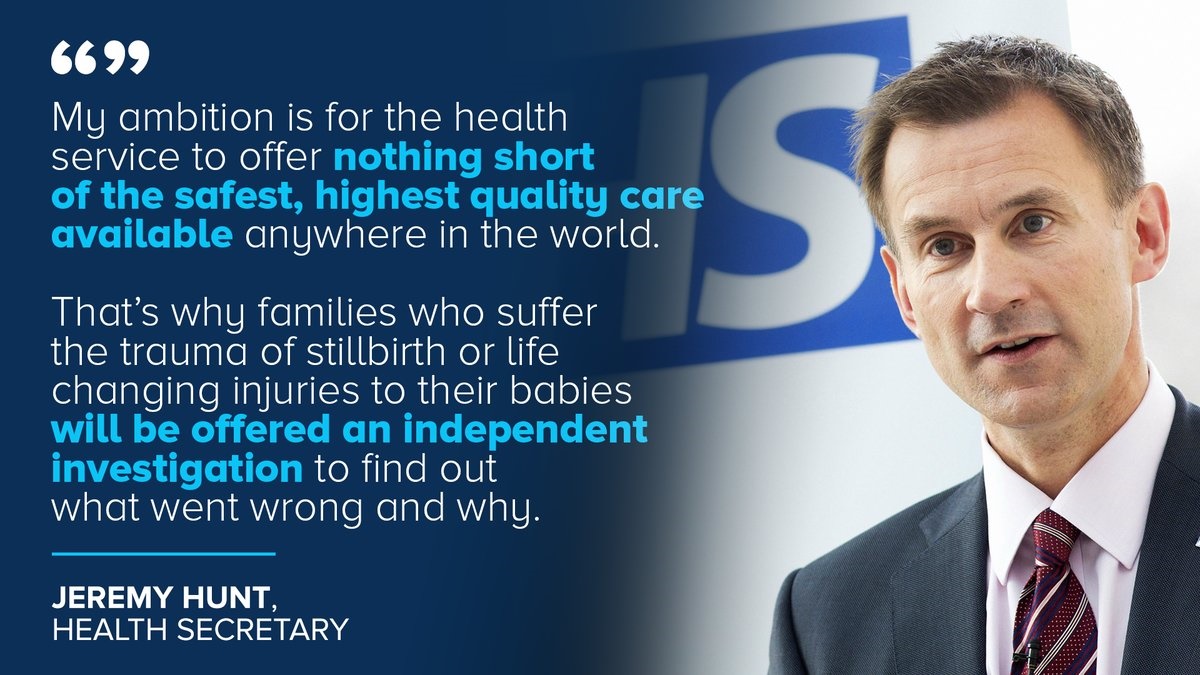
Justin Tomlinson MP has welcomed a series of announcements by the Health Secretary to reduce instances of stillbirths and ensure that all cases are compassionately & independently reviewed.
Thanks to the dedication and skill of NHS maternity teams, the vast majority of the roughly 700,000 babies born each year are delivered safely with high levels of satisfaction by parents. However, there is still too much avoidable harm and death – traumatic incidents too for the NHS staff involved.
Every child lost, and every child whose life is affected by an incident during birth is a heart-rending tragedy that will stay with families for the rest of their lives. Justin has worked closely with charities like Bliss & ‘Octopus for a Preemie’, both locally and nationally, to raise the profile of stillbirth, premature birth and harm caused during childbirth.
The Government’s drive to improve the safety of maternity care began in 2015 when we announced a plan to halve the rate of maternal deaths, neonatal deaths, brain injuries and stillbirths.
Last October, the Government set out a detailed strategy to support this ambition. Since then, over 80% of Trusts have a named Board level maternity champion.
We have launched the Maternal and Neonatal Health Safety Collaborative to provide intensive training to Trusts on quality improvement science. Trusts are benefiting from a share of an £8.1m training fund and 25 Trusts are carrying out innovative projects supported by a £250,000 Maternity Safety Innovation Fund.
However, the Government’s ambition is for the health service to be the safest, highest quality care available anywhere in the world - so there is much more work that needs to be done
The Health Secretary announced a series of additional measures to standardise best practice:
-
Healthcare Safety Investigation Branch ‘Each Baby Counts’ Investigations: From April 2018 every case of a stillbirth, neonatal death, suspected severe brain injury that is notified to the Royal College of Obstetrician and Gynaecologists Each Baby Counts programme - about 1000 incidents annually - will be investigated with a thorough, learning-focused investigation conducted by the Healthcare Safety Investigation Branch (HSIB). The new independent investigations will involve families from the outset, and will have an explicit remit not just to get to the bottom of what happened in an individual instance, but to spread knowledge around the system so mistakes are not repeated.
-
Coroners’ investigations: Following concerns that some neonatal deaths are being wrongly classified as stillbirths, which means a coroner’s inquest cannot take place, Ministers will work to ensure full-term stillbirths are covered by coronial law.
-
Rapid Resolution and Redress: One of the current barriers to learning is litigation. Earlier this year, the Government consulted on the Rapid Resolution and Redress Scheme. The scheme will launch in 2019, with a view to introducing a full Rapid Resolution and Redress Scheme in order to reduce delays in delivering support and compensation for families.
-
Clinical Negligence Scheme for Trusts incentive scheme: NHS Resolution spent almost £500m settling obstetric claims in 2016/17. Trusts which improve their maternity safety are saving the NHS money, making more money available for frontline care. In order to create a strong financial incentive on Trusts to improve maternity safety we will increase, by 10%, the CNST maternity premium paid by every maternity Trust - but refund the increase, possibly with an even greater discount, if they can demonstrate compliance with ten criteria identified as best practice on maternity safety by my Department’s national Maternity Safety Champions.
-
Training: A new e-learning programme for healthcare professionals is being launched to help reduce avoidable causes of harm that can lead to infants born at term being admitted to a neonatal unit. We will also increase training for consultants on the care of pregnant women with significant health conditions.
-
Smoking prevalence: Smoking during pregnancy is closely correlated with neonatal harm. Our Tobacco Control Plan commits the Government to reduce the prevalence of smoking in pregnancy from 10.7% to 6%, or less, by 2022, so we will provide new funding to train health practitioners such as maternity support workers to deliver evidence based smoking cessation.
- Halving stillbirths by 2025: Taken together, these measures give us confidence that we can bring forward the date by which we achieve a halving of neonatal deaths, maternal deaths, injuries and stillbirths from 2030 to 2025.
Justin Tomlinson MP said: “Every child lost, and every child whose life is affected by an incident during birth is a heart-rending tragedy that will stay with families for the rest of their lives. I have worked closely with charities like Bliss & ‘Octopus for a Preemie’, both locally and nationally, to raise the profile of stillbirth, premature birth and harm caused during childbirth. I am pleased that the Health Secretary has set out this important strategy to reduce avoidable death and harm.”
Health Secretary Jeremy Hunt MP said: “The tragic death or life changing injury of a baby is something no parent should have to bear, but one thing that can help in these agonising circumstances is getting honest answers quickly from an independent investigator. Too many families have been denied this in the past, adding unnecessarily to the pain of their loss. Countless mothers and fathers who have suffered like this say that the most important outcome for them is making sure lessons are learnt so that no-one else has to endure the same heartbreak. These important changes will help us to make that promise in the future.”

